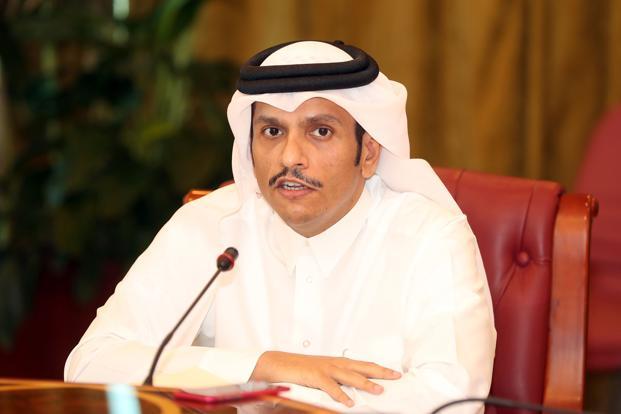Qatari foreign minister criticizes Saudi Arabia and UAE for ‘destabilizing’ Middle East and Somalia

Qatar’s foreign minister expressed a host of grievances over his Gulf counterparts’ regional activities on Sunday, calling out Saudi Arabia and the United Arab Emirates (UAE) in particular — and not just for their blockade of his country.
“We cannot blame one country on the destabilization of the region right now because the situation which we are suffering from is the result of a series of policies of different countries,” Sheikh Mohammed bin Abdulrahman al Thani told CNBC’s Hadley Gamble in Doha, when asked if Riyadh was to blame for increased turbulence in the Middle East.
“We are disagreeing with [Saudi Arabia] currently when they are blockading Qatar, when they continue the war on Yemen without reason, the way they kidnapped the Lebanese prime minister,” the foreign minister said. But he did not limit his criticism to Saudi Arabia, which in 2017 spearheaded an economic and diplomatic blockade against Qatar over accusations Doha supports terrorism, something the Qataris deny.
“We disagree also with the Emiratis’ policy when they go and supported brutal regimes, supported a military coup in Libya, supported a destabilization in Somalia, supported the separation and division of Yemen. And it’s just these policies which are destabilization.”
Under the shadow of a more aggressive Saudi Arabia, the UAE has been active in a number of African and Middle Eastern conflicts, often pursuing its own agenda independent of its Saudi and American allies.
Al Thani also called out the Emiratis for what he described as destabilizing activities in Libya and Somalia.
A 2017 UN report accused the UAE of violating an international arms embargo on Libya by sending attack helicopters and other military equipment to the renegade General Khalifa Haftar, a powerful military leader whose forces do not recognize the UN-backed government in Tripoli.
Meanwhile, Abu Dhabi began training security forces in the breakaway territory of Somaliland earlier this year and has been developing the semi-autonomous region’s port of Berbera, outraging the Somali government in Mogadishu. Somaliland authorities, who have claimed independence from Somalia since 1991, welcome the UAE’s engagement.
“Supporting the destabilization of Somalia, it is a supporter of terrorism,” al Thani said.
While Somalia grapples with a severe terrorist threat from Islamic militant group al-Shabab, Somaliland has not suffered a major terrorist attack in a decade.
SOURCES: CNBC